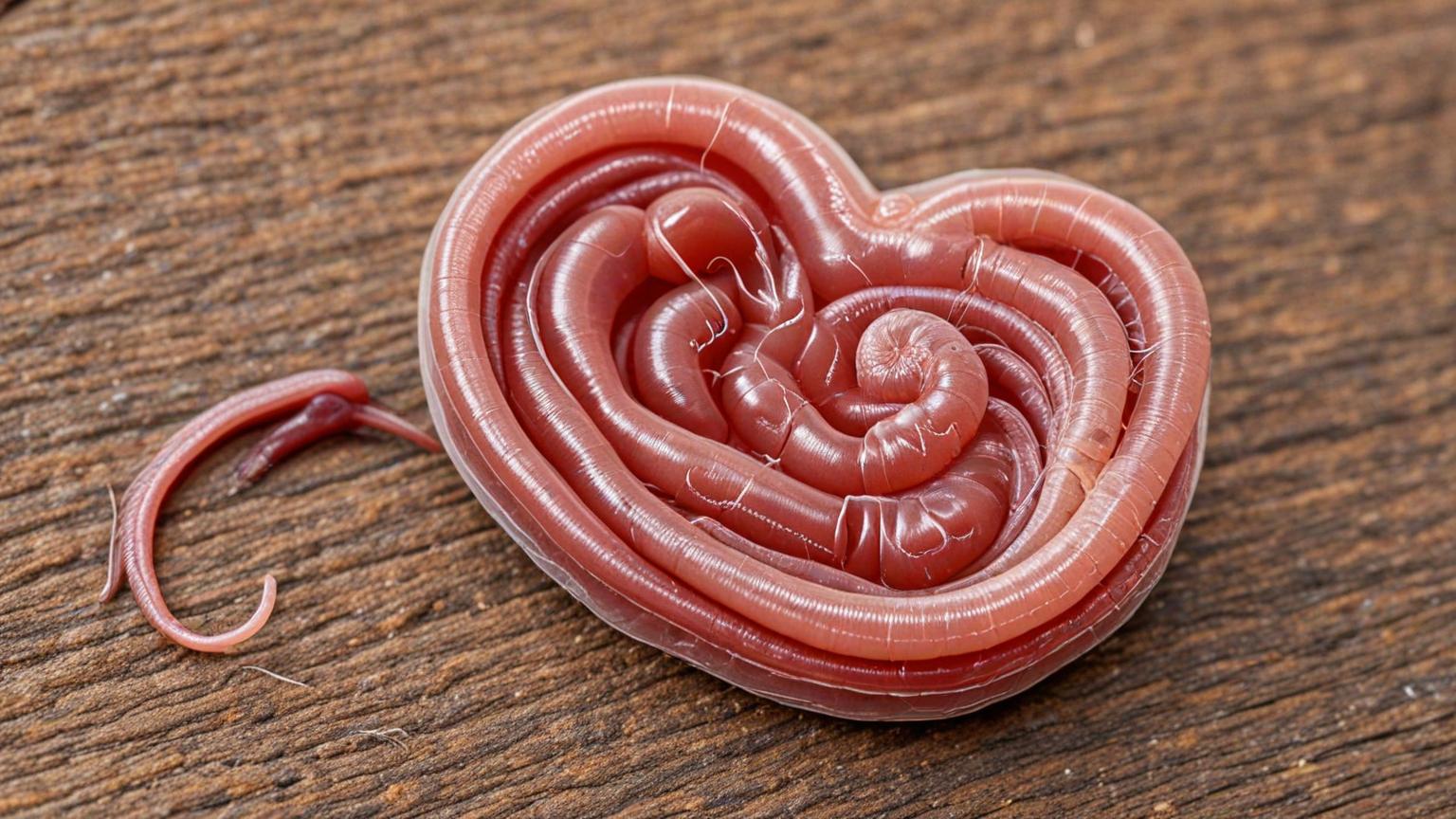Definition of Heartworm
Heartworm is a serious and potentially fatal disease caused by a parasitic worm, Dirofilaria immitis. These worms are transmitted through mosquito bites and primarily reside in the heart, lungs, and associated blood vessels of infected pets. The presence of these parasites can lead to severe lung disease, heart failure, and damage to other organs in the body.
Importance of Understanding Heartworm in Pets
Understanding heartworm disease is crucial for pet owners to ensure the health and longevity of their furry companions. Early detection and preventive measures can significantly reduce the risk of severe health complications, thereby enhancing the quality of life for pets.
Prevalence of Heartworm Disease
Heartworm disease is prevalent in many regions, particularly where mosquitoes are abundant. Although it is most commonly diagnosed in dogs, cats and other animals can also be affected. Knowing the risk factors and prevalence in your area can help in taking necessary precautions to protect your pets.
Types and Categories
Heartworm in Dogs
Dogs are the primary host for heartworms, and they can harbor a large number of worms. The infection can cause significant health issues, including severe lung disease, heart failure, and organ damage.
Heartworm in Cats
Cats are atypical hosts for heartworms, and they usually have fewer worms than dogs. However, even a small number of worms can cause serious health problems in cats, such as respiratory issues and sudden death.
Heartworm in Other Animals
Other animals, including ferrets and wild canids, can also be affected by heartworms. Although less common, the impact on these animals can be just as severe, requiring similar attention and care.
Symptoms and Signs
Common Symptoms in Dogs
Dogs with heartworm disease may exhibit symptoms such as coughing, fatigue, reduced appetite, and weight loss. As the disease progresses, more severe signs like heart failure, swollen abdomen due to fluid accumulation, and difficulty breathing can occur.
Common Symptoms in Cats
In cats, the symptoms are often more subtle and can include coughing, vomiting, loss of appetite, and weight loss. Some cats may show signs of respiratory distress or sudden collapse, which can be fatal.
Uncommon Symptoms and Complications
Uncommon symptoms can include fainting spells, seizures, and severe allergic reactions. Complications from heartworm disease can lead to long-term damage to the heart, lungs, liver, and kidneys, significantly affecting the pet’s health and longevity.
Progression of Symptoms
The progression of heartworm disease can be insidious, with early stages showing few or no symptoms. As the worms mature and multiply, the symptoms become more pronounced and severe, necessitating timely intervention to prevent irreversible damage.
Causes and Risk Factors
Transmission Through Mosquitoes
Heartworms are transmitted to pets through the bite of an infected mosquito. The mosquito serves as an intermediary host, where the heartworm larvae develop before being transmitted to the final host.
Environmental Risk Factors
Areas with high mosquito populations pose a greater risk for heartworm transmission. Stagnant water, warm temperatures, and humidity are conducive to mosquito breeding, increasing the likelihood of infection.
Geographic Distribution
Heartworm disease is more common in certain regions, particularly in the southeastern United States, but it has been reported in all 50 states. Traveling with pets to these areas can also increase the risk of exposure.
Lifestyle Factors
Outdoor pets or those frequently exposed to mosquito-prone areas are at higher risk of contracting heartworm disease. Preventive measures and regular check-ups are crucial for these pets to mitigate the risk.
Diagnosis and Tests
Physical Examination
A thorough physical examination by a veterinarian can reveal signs of heartworm disease, such as abnormal lung sounds, irregular heartbeats, and signs of organ distress.
Blood Tests
Blood tests, including antigen and antibody tests, are commonly used to detect heartworm infection. These tests can identify the presence of adult heartworms and their offspring in the bloodstream.
Imaging Tests
Imaging tests like X-rays and ultrasounds can help visualize the presence of heartworms in the heart and lungs, as well as assess the extent of the damage caused by the infection.
Advanced Diagnostic Tools
Advanced tools, such as echocardiography, provide detailed images of the heart and can help veterinarians assess the severity of the infection and plan appropriate treatment.
Treatment Options
Medical Treatments for Dogs
Treatment for dogs typically involves a series of medications to kill adult heartworms and larvae, along with supportive care to manage symptoms and prevent complications. Strict activity restriction is essential during treatment to reduce the risk of embolism.
Medical Treatments for Cats
There is no approved medication for treating heartworm in cats, so treatment focuses on managing symptoms and providing supportive care. In some cases, surgical removal of the worms may be necessary.
Surgical Interventions
In severe cases, surgical intervention may be required to remove heartworms from the heart and pulmonary arteries. This is a high-risk procedure but can be lifesaving for pets with advanced heartworm disease.
Alternative Therapies
Some alternative therapies, such as herbal treatments and homeopathy, are explored by pet owners, but their efficacy is not well-documented. Veterinary guidance is crucial when considering alternative treatments.
Managing Side Effects
Managing side effects of heartworm treatment is important to ensure a pet’s recovery. This includes monitoring for signs of adverse reactions and providing supportive care as needed.
Preventive Measures
Medications and Preventives
Preventive medications are highly effective in protecting pets from heartworm infection. These medications are available in various forms, including oral, topical, and injectable, and should be administered regularly as prescribed by a veterinarian.
Environmental Control Strategies
Reducing mosquito populations around your home can help lower the risk of heartworm transmission. This includes eliminating standing water, using mosquito repellents, and keeping pets indoors during peak mosquito activity.
Regular Vet Check-ups
Regular veterinary check-ups are essential for early detection and prevention of heartworm disease. Annual testing and preventive care can significantly reduce the risk of infection.
Public Awareness and Education
Educating pet owners about the risks and preventive measures for heartworm disease is crucial. Public awareness campaigns and resources can help spread knowledge and encourage responsible pet care.
Personal Stories or Case Studies
Case Study: Heartworm in Dogs
One case study involves a dog named Max who was diagnosed with heartworm disease after showing signs of fatigue and coughing. Through a combination of medical treatment and strict activity restriction, Max recovered and is now healthy.
Case Study: Heartworm in Cats
A cat named Bella was found to have heartworm disease after presenting with respiratory distress. While there is no approved treatment for heartworms in cats, supportive care and monitoring helped Bella manage her symptoms and improve her quality of life.
Recovery Stories
Recovery stories from heartworm disease highlight the importance of early detection and treatment. Pets like Max and Bella demonstrate the resilience of animals and the effectiveness of proper veterinary care.
Lessons Learned
Lessons learned from these case studies emphasize the need for preventive measures, regular veterinary visits, and prompt attention to any signs of illness in pets.
Expert Insights
Veterinarian Perspectives
Veterinarians stress the importance of year-round prevention and regular testing for heartworm disease. They recommend that pet owners follow prescribed preventive measures to protect their pets.
Research Findings
Recent research has focused on improving diagnostic tools and treatment options for heartworm disease. Advances in veterinary medicine continue to enhance our understanding and management of this condition.
Advice for Pet Owners
Experts advise pet owners to maintain a strict preventive regimen and stay informed about heartworm risks in their area. They also recommend regular communication with veterinarians to ensure the best care for their pets.
Future Research Directions
Future research aims to develop more effective treatments and vaccines for heartworm disease, as well as strategies to control mosquito populations and reduce transmission rates.
Conclusion
Summary of Key Points
Heartworm disease is a serious condition that can affect dogs, cats, and other animals. Understanding the symptoms, causes, and preventive measures is essential for protecting pets from this potentially fatal disease.
Importance of Prevention and Early Detection
Preventive measures and early detection are crucial in managing heartworm disease. Regular veterinary check-ups and the use of preventive medications can significantly reduce the risk of infection.
Call to Action for Pet Owners
Pet owners are encouraged to take proactive steps in preventing heartworm disease by administering preventive medications, reducing mosquito exposure, and scheduling regular vet visits. By doing so, they can ensure the health and well-being of their beloved pets.




